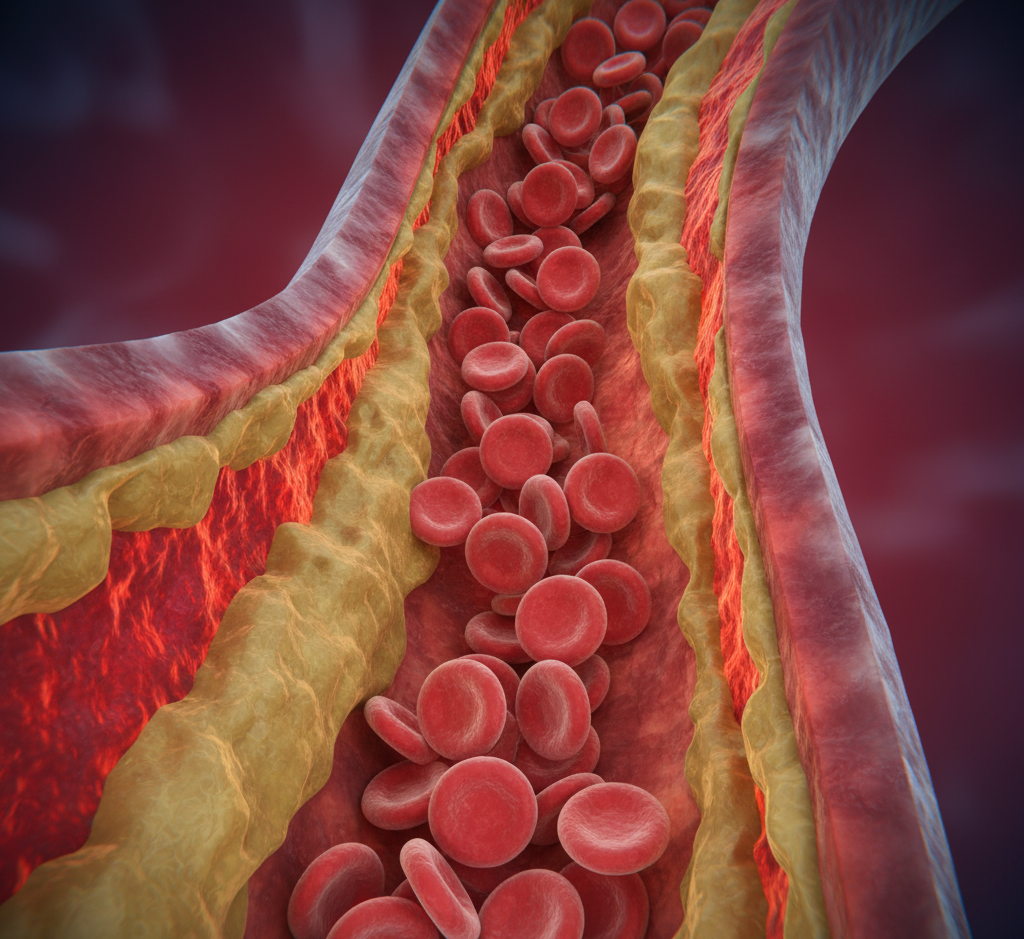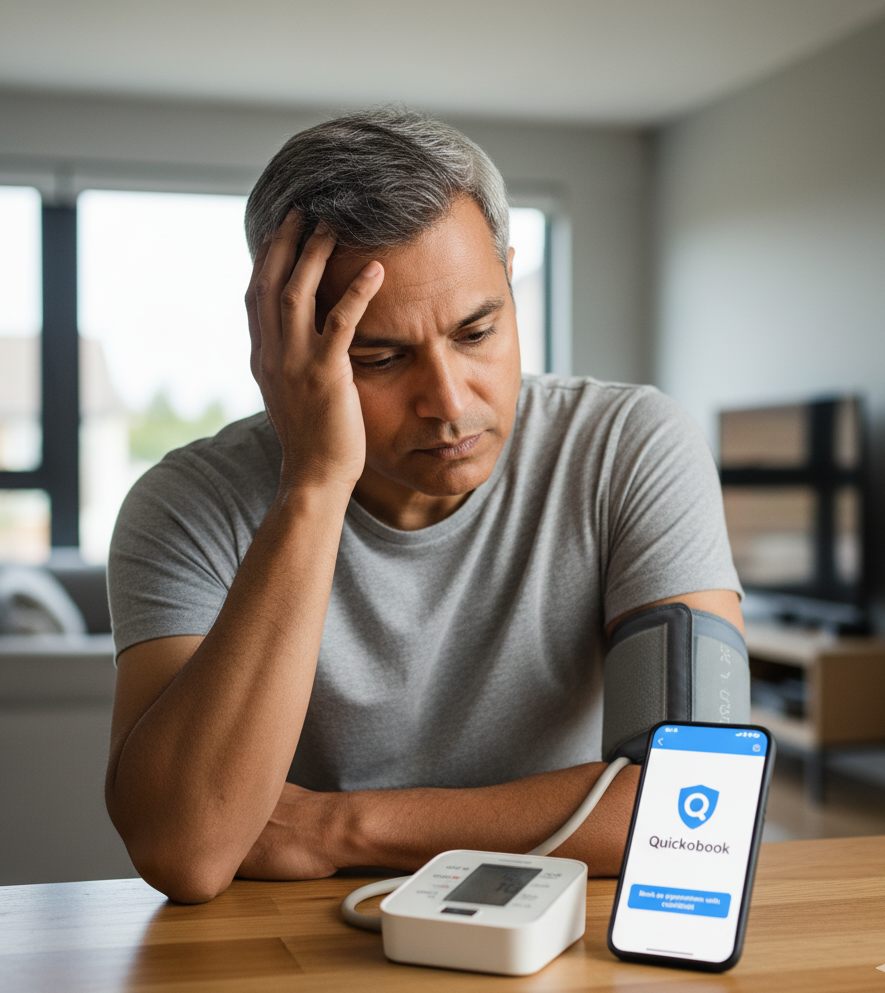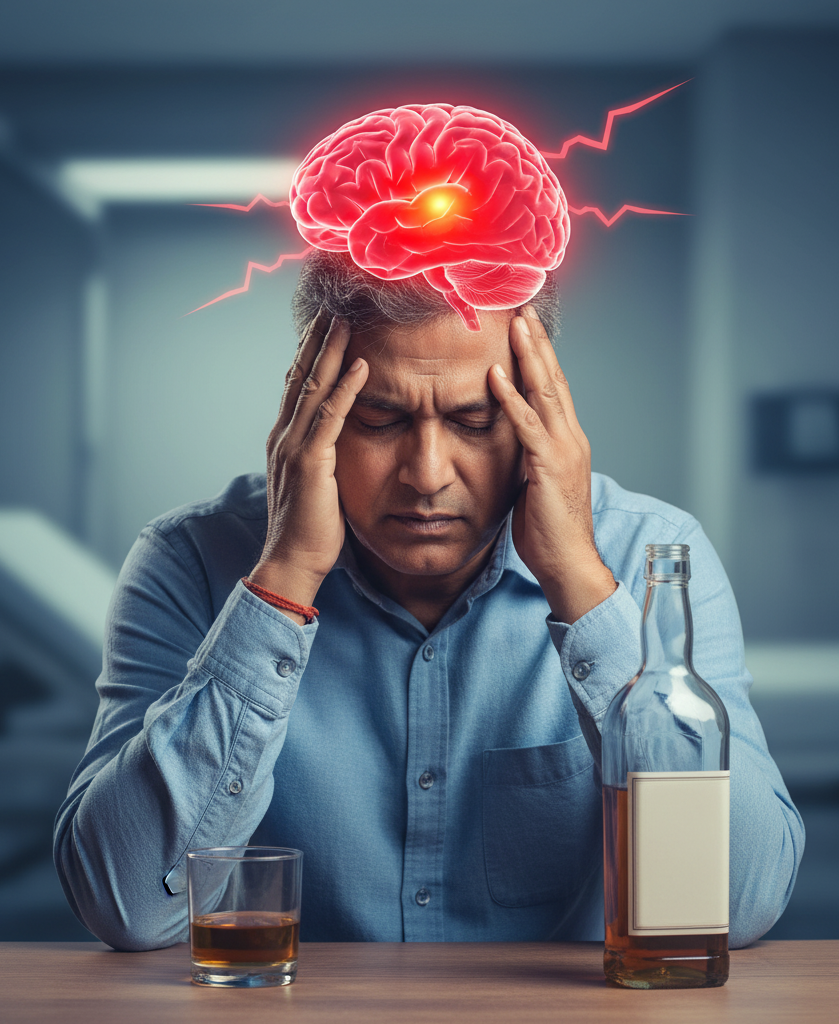Introduction: When Drinking Becomes Dangerous
In India and across the world, social drinking is common — from festive celebrations to weekend parties. However, what starts as a casual habit can quickly turn harmful. Recent research shows that heavy drinking is not just linked to liver disease but can also trigger earlier and more severe strokes, especially among younger adults.
A stroke happens when blood flow to the brain is interrupted or reduced, depriving brain tissue of oxygen. Heavy alcohol consumption accelerates this process by damaging blood vessels, increasing blood pressure, and making the blood more likely to clot. For many, a stroke strikes years earlier than it should — and the consequences can be lifelong.

Understanding How Alcohol Affects the Brain and Blood Vessels
Alcohol reaches the brain within minutes of consumption. In small, occasional amounts, it might relax you or improve mood. But when consumed in large quantities, it becomes a neurotoxin.
-
It raises blood pressure: Chronic drinking keeps your arteries constricted, straining your heart and brain.
-
It thickens the blood: Alcohol affects clotting mechanisms, increasing the risk of both hemorrhagic (bleeding) and ischemic (blockage) strokes.
-
It damages vessel walls: The inner lining of arteries becomes weaker, leading to ruptures.
-
It disrupts brain signaling: Long-term exposure reduces oxygen flow and damages nerve cells.
Over time, these effects lead to what doctors call cerebrovascular disease — a condition that sets the stage for strokes.
The Science Behind the Link: What the New Study Found
Recent studies from European and Indian research teams have shown that heavy drinkers are twice as likely to suffer a stroke compared to moderate drinkers or non-drinkers. Even more alarming, strokes in heavy drinkers tend to occur 10–15 years earlier than in the general population.
The study also revealed that:
-
Those who consumed more than 3–4 drinks daily had a threefold higher risk of ischemic stroke.
-
Alcohol-related strokes are often more severe, leading to higher rates of paralysis and long-term disability.
-
Men are more likely to experience early stroke due to heavier drinking patterns, but women face stronger long-term neurological effects due to lower alcohol tolerance.

Why Heavy Drinking Causes Earlier Strokes
The connection between alcohol and early stroke involves multiple biological mechanisms:
-
Blood pressure spikes: Every drinking session can temporarily raise blood pressure, and chronic use makes these spikes permanent.
-
Atrial fibrillation: Alcohol disrupts heart rhythm, increasing the risk of clots that can travel to the brain.
-
Dehydration: Alcohol dehydrates the body, thickening the blood and reducing oxygen delivery.
-
Nutritional deficiency: Heavy drinkers often lack vitamin B1 (thiamine), essential for brain function and vessel health.
-
Inflammation: Alcohol triggers chronic inflammation in blood vessels, accelerating plaque formation and blockage.
These factors combine to weaken both heart and brain function, setting up a perfect storm for stroke.
Symptoms of Stroke to Watch For
Every second counts during a stroke. Recognizing symptoms early can save lives. Remember the FAST rule:
-
F – Face drooping: One side of the face droops when smiling.
-
A – Arm weakness: Difficulty lifting one arm.
-
S – Speech difficulty: Slurred or strange speech.
-
T – Time to call help: Seek medical help immediately.
Other symptoms include:
-
Sudden numbness or tingling
-
Loss of balance or coordination
-
Blurred or double vision
-
Sudden severe headache
-
Dizziness or confusion
ALSO READ: Evolutionary Sex Bias In Cognitive Response To New Environmental Risk Factor - Pm2.5
The Double Burden: Heavy Drinking, Heart Disease, and Stroke
Alcohol doesn’t just affect the brain; it impacts the entire cardiovascular system. Heavy drinkers often have:
-
High blood pressure
-
Irregular heart rhythm (atrial fibrillation)
-
High cholesterol and triglycerides
-
Fatty liver and metabolic imbalance
These interconnected problems mean a stroke is not an isolated event — it’s often part of a broader pattern of lifestyle-related vascular disease.
In India, where alcohol consumption is rising among both men and women, doctors are already reporting younger stroke cases — people in their 30s and 40s suffering what was once a disease of old age.

Alcohol and Gender: Different Risks for Men and Women
Men and women metabolize alcohol differently.
-
Men often drink larger volumes, increasing the risk of early-onset stroke and heart attack.
-
Women experience more pronounced effects at lower doses because of hormonal and body composition differences.
-
Postmenopausal women lose estrogen’s natural protection against vascular damage, making heavy drinking especially dangerous.
Even moderate drinking over time can harm women’s brain and heart health faster than men’s.
The Brain After a Stroke: How Alcohol Makes Recovery Harder
Recovering from a stroke is a slow process that requires the brain to rewire itself. Unfortunately, alcohol disrupts this recovery:
-
It slows down neuroplasticity (the brain’s ability to heal).
-
It interferes with rehabilitation exercises and motor recovery.
-
It worsens mood disorders like anxiety and depression that often follow a stroke.
Continued drinking after a stroke doubles the risk of recurrence and makes rehabilitation less effective.
Diagnosing Alcohol-Related Stroke
Doctors may perform:
-
Brain imaging (CT/MRI): To identify bleeding or blockage.
-
Blood tests: To check liver enzymes, cholesterol, and coagulation levels.
-
Echocardiogram and ECG: To detect heart rhythm issues.
-
Alcohol screening: To assess dependency and impact on organs.
Patients with a history of heavy drinking often show multiple organ involvement — including liver, heart, and brain changes.
Treatment and Prevention
Medical Treatment
-
Acute stroke management: Clot-busting drugs or surgery if detected early.
-
Blood pressure control: Medications and salt restriction.
-
Blood thinners: To prevent further clot formation.
-
Counseling and rehabilitation: Speech, occupational, and physical therapy.
Lifestyle Measures
-
Quit alcohol completely.
-
Maintain healthy weight and diet.
-
Exercise regularly — even 30 minutes of brisk walking daily.
-
Stay hydrated and eat foods rich in B vitamins, fruits, and antioxidants.
-
Manage stress through yoga, meditation, and social support.

When to See a Doctor
You should consult a doctor if you notice:
-
Frequent headaches after drinking
-
Numbness or tingling in limbs
-
Slurred speech or dizziness
-
Palpitations or high blood pressure
-
Any family history of stroke or heart disease
A general physician or neurologist on Quickobook can guide you with diagnostic tests, counseling, and recovery plans.
Public Health and Awareness in India
India is witnessing a worrying trend — rising alcohol intake and decreasing age of first drink. According to national health surveys, nearly one in five adults consumes alcohol regularly, with a growing number of binge drinkers among urban youth.
Public health experts are calling for stronger awareness campaigns, taxation policies, and alcohol-control programs. The focus should shift from just “drink responsibly” to “protect your brain and heart.”
Preventing Stroke: A Quick Checklist
-
Avoid heavy drinking or quit alcohol entirely.
-
Control blood pressure and diabetes.
-
Eat low-salt, high-fiber foods.
-
Stop smoking.
-
Exercise daily.
-
Sleep 7–8 hours each night.
-
Get annual health checkups.
Even small changes can drastically reduce stroke risk.
Conclusion
Heavy drinking is more than a hangover — it’s a ticking time bomb.
The latest studies prove that regular heavy alcohol consumption not only raises stroke risk but also makes it happen much earlier and with more severe outcomes.
Protecting your brain and heart begins with moderation or, better yet, complete abstinence. Your health, memory, and future depend on it.
If you or someone you know struggles with alcohol, seek medical advice today. Early help saves lives.
Quickobook Call-to-Action
Book a consultation on Quickobook to connect with trusted neurologists, cardiologists, and general physicians in your city. Whether you want preventive advice, a stroke screening, or help with quitting alcohol — Quickobook helps you find the right care instantly.
Visit www.quickobook.com — Your health. Our priority.
50 FAQs: Heavy Drinking, Stroke Risk, and Brain Health
-
What counts as heavy drinking?
More than 3 drinks a day for men or 2 drinks a day for women is considered heavy drinking. -
Can heavy drinking cause a stroke?
Yes, it damages blood vessels and increases the risk of both clotting and bleeding strokes. -
How soon can alcohol cause brain damage?
Chronic damage can begin within months of regular heavy drinking. -
Does occasional drinking cause stroke?
Occasional small amounts are less risky, but binge drinking episodes can still trigger strokes. -
Why are strokes happening at younger ages?
Unhealthy lifestyles, smoking, and alcohol abuse are major contributors. -
Can stopping alcohol reduce stroke risk?
Yes, quitting immediately lowers blood pressure and improves vascular health. -
Does alcohol affect men and women differently?
Yes, women have lower alcohol tolerance and face faster organ damage. -
How does alcohol raise blood pressure?
It constricts blood vessels and activates stress hormones. -
What’s the difference between an ischemic and hemorrhagic stroke?
Ischemic strokes are caused by clots; hemorrhagic strokes occur due to bleeding. -
Can hangovers cause mini-strokes?
Severe dehydration and high blood pressure from binge drinking can trigger mini-strokes. -
What is a mini-stroke (TIA)?
It’s a temporary blockage that mimics stroke symptoms but resolves within hours — a warning sign for a real stroke. -
Can the brain heal after a stroke?
Yes, with timely medical treatment and rehabilitation, partial recovery is possible. -
How does alcohol affect recovery after stroke?
It slows healing and increases the risk of another stroke. -
Can one drink a day still be harmful?
For some, especially those with hypertension or heart disease, even one drink daily may pose risks. -
Does alcohol cause dehydration?
Yes, it removes water from the body, thickening blood and stressing the brain. -
What vitamins protect against alcohol damage?
Vitamins B1, B6, B12, and folate support brain and vessel health. -
Is wine safer than hard liquor?
Not really — the ethanol content causes similar vascular strain. -
Can alcohol cause memory loss?
Yes, it damages the hippocampus, responsible for memory and learning. -
Does alcohol thin or thicken the blood?
It can initially thin the blood but later increase clot formation with chronic use. -
Are women at higher stroke risk from drinking?
Yes, due to hormonal sensitivity and smaller body mass. -
Can alcohol withdrawal cause seizures?
Yes, severe withdrawal can trigger seizures in dependent individuals. -
How is alcohol-related stroke treated?
With clot-busting drugs, blood thinners, and supportive care under medical supervision. -
What lifestyle changes help recovery?
Healthy diet, quitting alcohol, physical therapy, and regular checkups. -
Is beer safer than whiskey?
No. All alcoholic beverages contain ethanol, which stresses the heart and brain. -
Can alcohol cause anxiety and depression?
Yes, it disrupts brain chemicals and increases emotional instability. -
How common are strokes in India?
Around 1.8 million Indians suffer a stroke each year, with rising cases under age 45. -
What is the first sign of a stroke?
Sudden facial droop, weakness, or slurred speech — act immediately. -
Can alcohol affect sleep quality?
Yes, it disrupts REM sleep and causes fatigue. -
Is moderate drinking beneficial for the heart?
Recent evidence shows no safe level of alcohol for heart or brain. -
Can alcohol affect vision or balance?
Yes, it impairs coordination and affects brain centers for movement and sight. -
Does alcohol cause high cholesterol?
It increases triglycerides, contributing to artery blockage. -
Can exercise offset alcohol damage?
It helps but cannot fully reverse vascular harm from heavy drinking. -
What should I eat after quitting alcohol?
Fruits, vegetables, proteins, and whole grains to restore nutrients. -
How long does it take for blood pressure to drop after quitting?
Usually within 2–4 weeks of sobriety. -
Can heavy drinkers live a normal life after quitting?
Yes, early intervention helps restore health and prevent further strokes. -
How can families help heavy drinkers?
Offer emotional support and encourage medical consultation instead of blame. -
Can counseling help stop drinking?
Yes, therapy and support groups improve recovery success. -
Are alcohol-free beers safe?
They still contain small amounts of alcohol; caution is advised for stroke patients. -
Can I drink occasionally after a stroke?
Doctors recommend complete abstinence to avoid complications. -
Does dehydration worsen stroke risk?
Yes, dehydration thickens blood and reduces oxygen flow to the brain. -
Can alcohol trigger migraines?
Yes, certain alcoholic beverages like wine can trigger vascular headaches. -
Are people with diabetes at higher stroke risk from alcohol?
Yes, because alcohol affects insulin and blood sugar control. -
Can quitting alcohol suddenly be dangerous?
In dependent individuals, withdrawal must be medically supervised. -
Does alcohol affect brain cells permanently?
Yes, prolonged exposure causes irreversible neuron loss. -
Can alcohol lead to dementia?
Yes, chronic drinking is a major cause of alcohol-related dementia. -
How is alcohol dependence diagnosed?
Through medical history, liver tests, and behavioral assessment. -
What’s the best way to quit drinking?
Gradual reduction with counseling and medical support. -
Can medication help quit alcohol?
Yes, drugs like naltrexone and acamprosate help reduce cravings. -
Is there a genetic link to alcohol-related stroke?
Family history can increase susceptibility due to shared vascular risk factors. -
How can I get help today?
Book a consultation on Quickobook with a doctor specializing in addiction or neurology for immediate guidance.









Comments (0)
No comments yet. Be the first to share your thoughts!
Leave a Comment